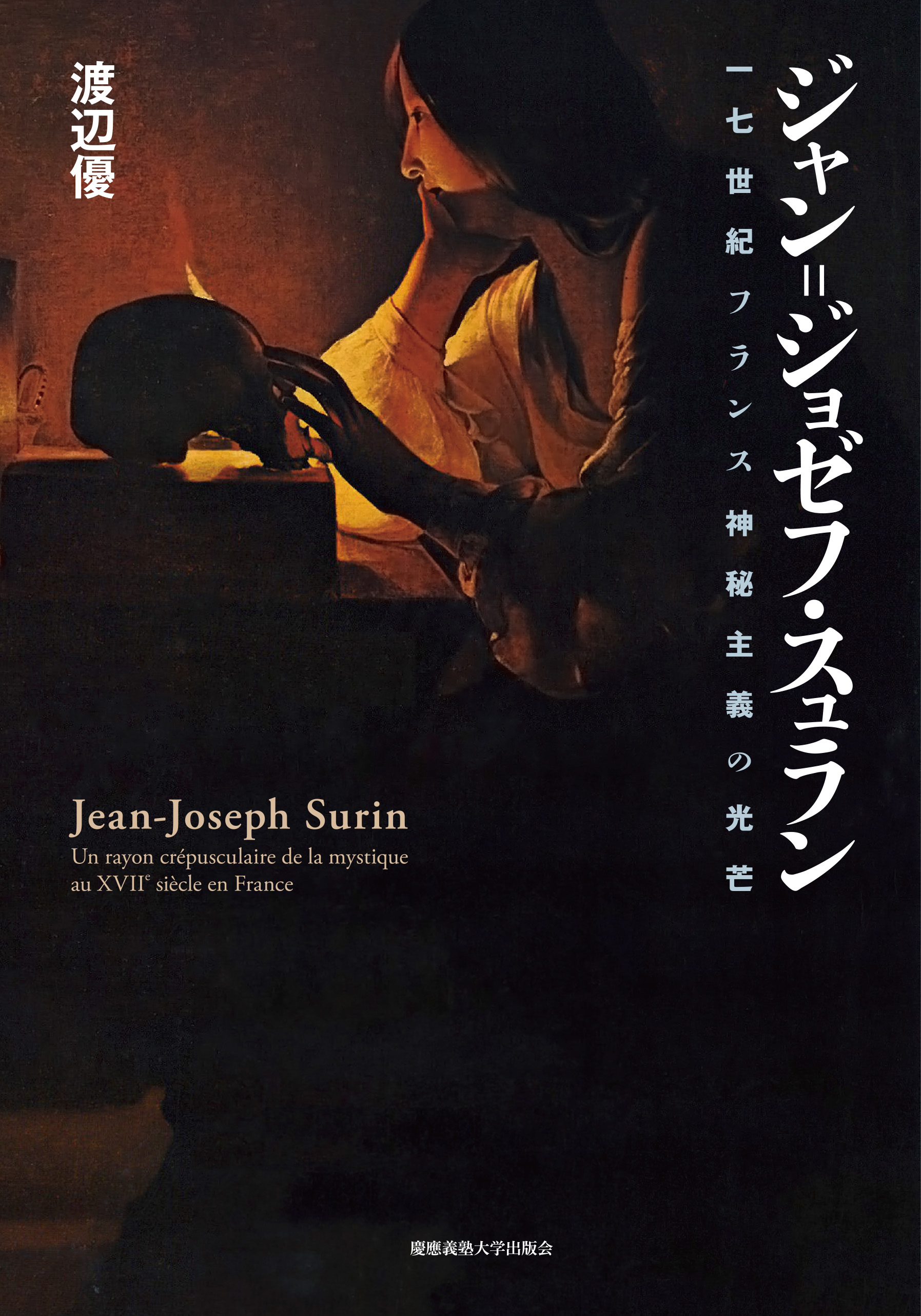
Title
Jean-Joseph Surin (A twilight ray of 17th-century French mysticism)
Size
474 pages, A5 format, hardcover
Language
Japanese
Released
October 15, 2016
ISBN
978-4-7664-2368-6
Published by
Keio University Press
Book Info
See Book Availability at Library
Japanese Page
This book is scholarly significant in three main ways. First, it is not only the first monologue published in Japanese on the 17th-century Jesuit mystic Jean-Joseph Surin (1600-1665) but, also, from a global standpoint, fundamentally revises the image of Surin based on previous works. Second, it expands the conventional understanding of mysticism (la mystique) and breaks new ground in research on mysticism, which has been an important sub-domain within the study of religion since the 19th century. Third, it elucidates the extent of history of thought of mysticism by demonstrating how the problematique of mysticism in early modern times can resonate with present-day post-modern radical religious thought.
Something that is almost always mentioned whenever Surin’s name comes up are the “possession of Loudun” (1632-1637). The incident, which occurred at a convent of nuns in the provincial town of Loudun in western France, is known as the most extensive case of demonic possession, which was a frequent occurrence in early modern Europe. Surin’s involvement in this incident as an exorcist left an indelible mark on his life. Surin, who was responsible for the exorcism of the mother superior of the convent Jeanne des Anges, offered himself to be possessed by the demons in exchange for their release of Jeanne. As a result, Surin was plagued with seizures and paralysis for the next 20 years of his life. He went on to summarize his experiences during this period in autobiographical work titled La science expérimentale (1663). The many graphic depictions of extraordinary experiences contained therein resonate with the mystical experience-centered understanding in the discourse on the mysticism from the modern era onward and have bolstered the image of Surin as a possessor of bizzare mystical experiences.
What this book focuses on, however, is Surin’s journey after Loudun and his spiritual state into the later years of his life. After his overwhelming direct experiences at Loudun had passed, Surin’s subsequent journey took him over the gloomy, flat ground of “commonplace, ordinary faith.” Having been exiled to the “suburb of eternity” isolated from God’s light, his soul yearned for an “absent God” and bore the “wounds of love.” The true essence of Surin’s mysticism lies in this “bare-naked faith” after all of his extraordinary experiences had rubbed off. Surin explained that this “state of faith” in which these “wounds of love” grows the further we are removed from direct contact with God is a treasure that enables us to associate with God in a different way while living among people.
Thus, the book, while depicting a new image of Surin, encourages a fundamental reexamination of the conventional view of mysticism which keeps distance from language and historicity as essentially being centered on individual and internal experiences. Insofar as mysticism has been regarded as deeply connected to the question of the essence of religion (“What is religion?”), this reexamination is directly linked to a reexamination of our view of religion itself. The words of faith of this modern mystic, who continued to yearn for and talk about God even after God had left, resonates with the words of radical thinkers who question the state of religion in today’s world in which the “death of God” and “exit from religion” are being touted. One more aim of this book is to bring mysticism, which tends to be treated as an oddity, to the center stage in the discussion on the history of thought.
(Written by WATANABE Yu, Associate Professor, Graduate School of Humanities and Sociology / 2021)
Related Info
34e édition (2017) Prix Shibusawa Claudel Grand Prix (Maison franco-japanaise 2017)
https://www.mfjtokyo.or.jp/fr/shibukuro.html
2017 Japanese Associate for Religious Studies Award
https://jpars.org/archives/3310



 Find a book
Find a book


 eBook
eBook